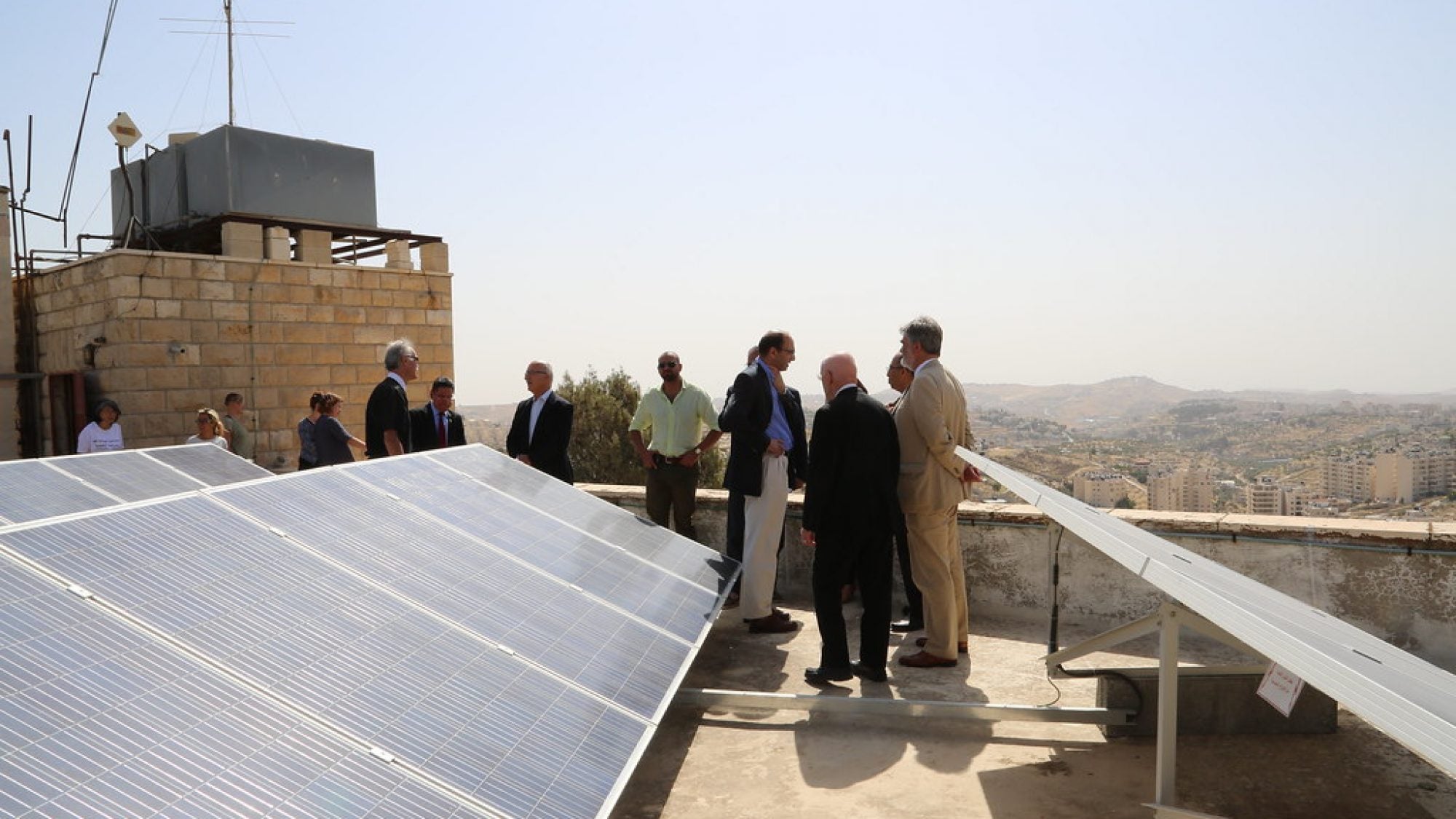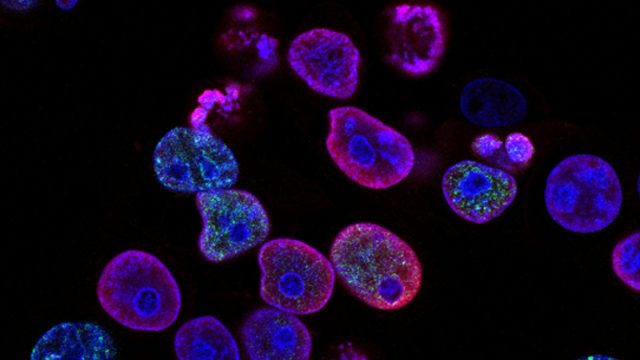
Title: PART II: Energy Infrastructure and the Epistemological Pillars of Peace
This article is the second installment of a two-part series. The first installment was published on Monday, February 22.
The Palestinian Authority’s efforts towards greater autonomy, prosperity, and peace can be supported through a new perspective on how energy systems can affect and contribute to broader national and regional political and economic goals. No longer can we afford to ignore the potential for political development that is intrinsic to the processes of economic development.
Governance
The Palestinian National Policy Agenda: 2017-2022 is subtitled “Putting Citizens First.” Putting the well-being of its citizenry first is not only a sound political imperative, it is also a highly effective instrumental goal in the design and maintenance of the new energy system. Engaging the citizenry in the determination of the energy infrastructure will result in a more effective energy system while also supporting a much-needed civic infrastructure essential for national unity and regional peace and prosperity. Bringing the consumers of the intended array of energy services into the decision-making process will provide a more informed and thus responsive energy system while extending a level of autonomy to the consumer base that reinforces their role as citizens.
The skills that Palestinians can hone and the civic habits they can cultivate through collaboration with energy technicians and policy-makers will translate to the broader strengthening of Palestinian civil society and the formation of social capital. While public participation in the design and management of the new energy system can be viewed as a means to a better energy system, this kind of procedural decision-making can become an end in itself as it realizes a range of objectives punctuating the National Policy Agenda. Integrating transparency, accountability and public participation into the formation of the energy infrastructure is a tangible way to foment a number of the goals and priorities so clearly articulated in the National Policy Agenda. These include: “strengthen economic and social empowerment;” “promote social integration;” and “upholding Democratic Principles.”
Palestinians have the benefit of myriad examples of experimentation in the growing movement of energy democracy. The burgeoning growth of distributed energy systems around the world has put the citizen back into the picture and has fused the roles of consumer and citizen. An examination of the history of electricity systems and its contemporary manifestations reveal that they frequently take on characteristics of the socio-political systems they serve. Thus, a political system that seeks greater independence, national unity, and strengthened international status, as do the Palestinian Territories, can begin moving toward those goals by designing a power system that internalizes those values and promotes their importance.
Nexus
Energy and water are often not given the diplomatic attention they deserve, and even when they are considered, nuance is omitted from the discussion. World leaders believe that by breaking the whole into manageable pieces they can achieve foreign policy objectives, but experience shows that foreign policy environments are not shielded from the behavior of the natural environments in which they sit. Greater dedication to the multiple dimensions of energy and water and the nexus of the two systems (resource, political, cultural, and economic) in diplomatic initiatives and geopolitical propositions will produce two significant benefits. First, the procedural activities surrounding energy and water decision-making generate opportunities to address broader political, theological, and ethnic conflicts in technical, non-ideological fashions. Second, successful energy and water service provision will help unleash productivity, entrepreneurialism, and wealth creation, each of which in turn ameliorating existing ideological differences.
People coming together to decide how to respond to the basic need of energy and water service provision is a fundamental act of politics. However, this decision-making process can be executed in ways that lower political intensity, obscure theological differences, and defuse ethnic rivalries. This dynamic enjoys validation in cross-border situations as well. The conversation on energy and water service delivery fuses the technical to the sociological and conjoins the elements of engineering to the imperative of institution-building. By using the non-ideological necessity of delivering energy and water services, processes and relationships can develop that ultimately address the deeper divides of political, religious, and ethnic conflict.
Not all cross-border energy transfers automatically lead to improved political relations (see Morocco and Algeria), but examples do persist in suggesting that they can help ameliorate some of the more severe forms of political animosity. For example, Ireland has created “all-island” markets for both power and natural gas. Those markets are able to accommodate different currencies and have formed cross-border, inter-governmental regulatory bodies as well as technical operational functions. Other examples exist in South Asia, where India and its neighbors share multiple water resources for hydropower. Similarly, for decades the Middle East has pursued various initiatives that seek to mitigate conflict in the process of securing water resources.
Only when people are first provided the means to satisfy their economic and social needs can appeals to their nobler, public-spirited virtues be made. People cannot be expected to be drawn into the political currents of public virtue when they struggle to turn on the lights, cool and heat their homes, access clean water, and support their children’s hopes of navigating the modern world. Thus, a series of “mini-publics” of Levantine energy and water experts and civilian customers deliberating the region’s energy and water systems can lay the foundation for greater possibilities of conflict resolution and cooperative cohabitation.
In the Middle East, energy connectivity and the increasing need to not only provide cleaner energy and water services domestically but also move energy sources across political boundaries can serve as the animating force to forge the stronger geopolitical goals of conflict resolution and peace.
In Perpetual Peace, Immanuel Kant postulates three fundamental conditions of global peace: civic constitutions where all residents are citizens in republican forms of government, a regional and global constellation of free states, and an environment of hospitality. Our contention is not that regional—let alone global—perpetual peace is simply a matter of getting the governance of our energy needs in order. Instead, a more creative view of energy system design may help illuminate the way to a more resolute, convivial, and hospitable civic infrastructure that positively responds to Kant’s three conditions. A new approach that draws on photovoltaics (PVs) and pipelines for peace in a region where so much has been tried and so much has failed should warrant this re-consideration.
. . .
Griffin Thompson is an adjunct professor at Georgetown University, as well as a non-resident fellow at the Payne Institute for Public Policy in the Colorado School of Mines.
Morgan Bazilian is a Professor and Director of the Payne Institute for Public Policy at the Colorado School of Mines. Previously, he was lead energy specialist at the World Bank.
Recommended Articles

This article examines the EU’s cyber diplomacy in Moldova’s parliamentary elections from September 28, 2025, which marked a new chapter in the bloc’s cyber diplomacy. Drawing on analysis of Russian…

Export controls on AI components have become central tools in great-power technology competition, though their full potential has yet to be realized. To maintain a competitive position in…

The Trump administration should prioritize biotechnology as a strategic asset for the United States using the military strategy framework of “ends, ways, and means” because biotechnology supports critical national objectives…